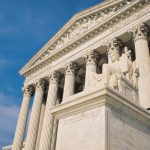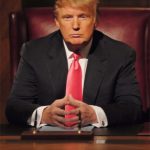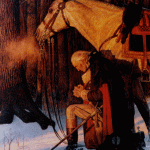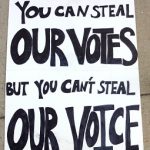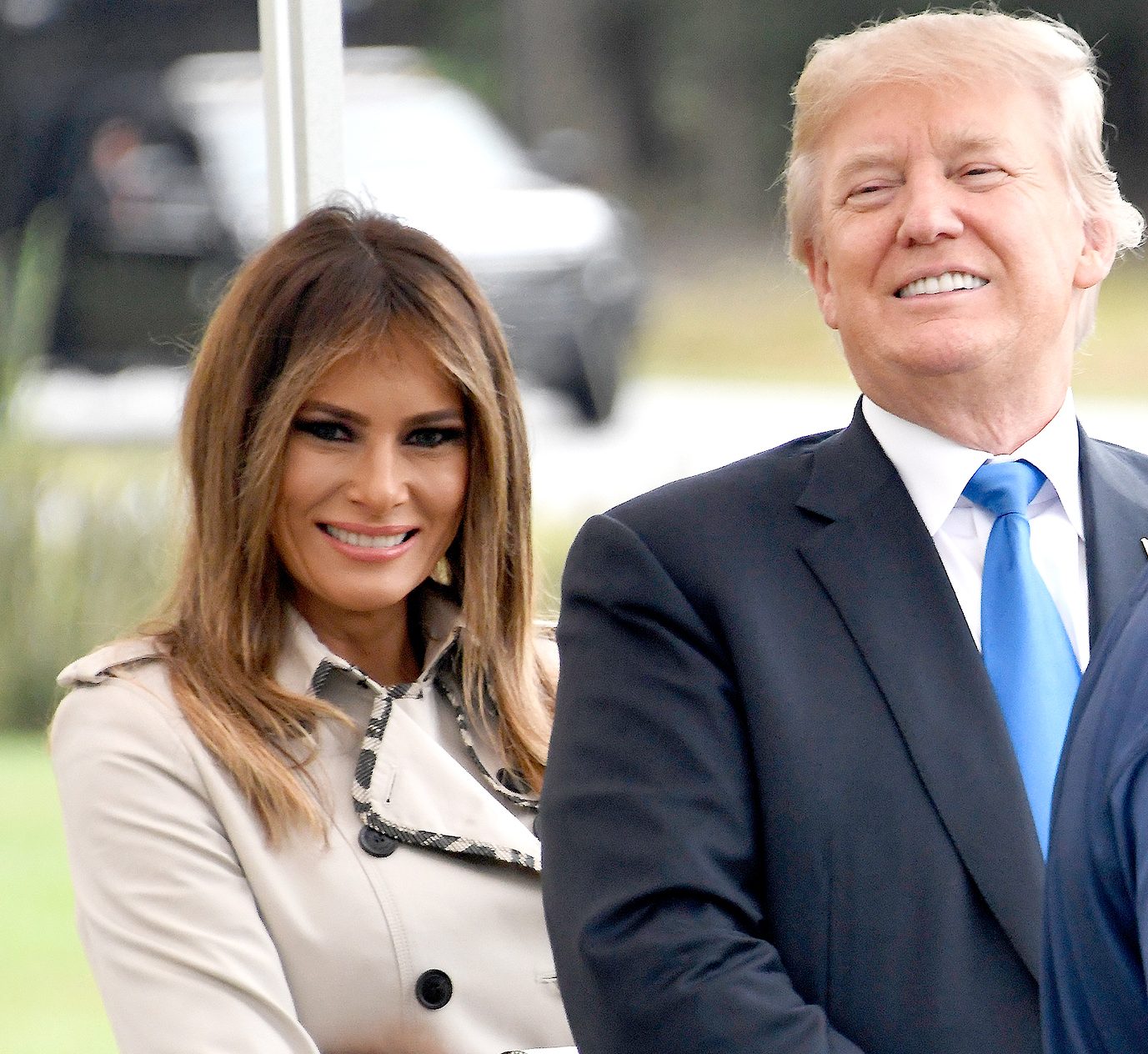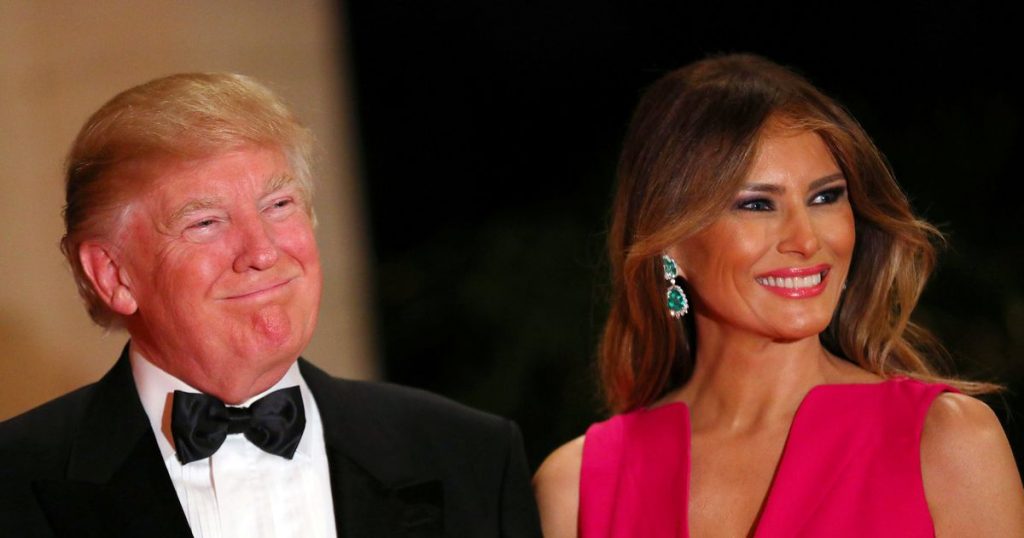In Support of Brackeen
Adapted from the thesis ‘Philosophical Underpinnings and Negative Consequences of the Indian Child Welfare Act,’
by Elizabeth Morris*
PDF: The Indian Child Welfare Act: An Unconstitutional Attack on Freedom
The Fifth Amendment to the United States Constitution provides that: “No person shall be…deprived of life, liberty, or property, without due process of law…” and the Fourteenth Amendment, Section 1, states “nor shall any State deprive any person of life, liberty, or property, without due process of law...” (Congress 1787). But for almost 200 years, the U.S. federal government has assumed a power that deprives members of federally recognized Indian tribes of these privileges – and for almost a century, the federal government has claimed wardship over U.S. citizens who happen to be tribal members.
Yet, despite the nineteenth century U.S. federal court rulings that propagated this view, disagreement continues as to whether tribes located within the United States are indeed sovereign, whether Congress has plenary power over them, and whether individual tribal members have U.S. Constitutional rights.
- Some tribal officials argue that international law should not have been forced upon non-European cultures that had no say in it. Others point to natural law and international law – the grounds for treaties between nations – as basis for uninterrupted tribal sovereignty.
- Some tribal representatives argue that the Constitution has no authority over tribes or tribal members. Others cite the Constitution when seeking judicial redress for their community.
- Some historians say the Constitution never gave Congress anything more than the power to regulate trade with tribes. Others claim the Constitution not only gave Congress total and exclusive plenary power to decide almost every aspect of life in Indian Country – but by unstated extension, gave the executive branch this power as well.
- Some say treaties promise a permanent trust relationship. Others point out that most treaties have clearly specified final payments of federal funds and benefits and were written and signed with clear intent for gradual assimilation.
Where Does the Plenary Authority of Congress Come From?
Law professor Robert G. Natelson writes, “For many years, Congress has claimed, and the Supreme Court has conceded, a plenary power over American Indian tribes” (2007, 204). But, according to Natelson, there are problems with how historical documents have been construed. Legal scholar Matthew L. M. Fletcher agrees and notes that the origin of federal authority over Indian tribes is unclear, as the Constitution carried no “clear textual provisions” concerning such power. Due to that lack, the Supreme Court has created a body of “unwritten constitutional law” (Fletcher 2006, 654). Supreme Court Justice Stephen Breyer’s 2004 majority opinion in United States v. Lara is an example of Congressional authority in dealing with Indian affairs being categorized as “beyond the strictures of the Constitution” (Fletcher 2006, 656).
Authority is not Inherited from Britain
This unwritten authority, according to Natelson, is said by some to have been inherited from the British Crown, which transmitted “extraconstitutional sovereign authority to the Continental Congress, which then passed it to the Confederation Congress, which in turn conveyed it to the federal government” (2007, 204). However, Natelson argues:
As a matter of historical record, the British Crown did not transfer its foreign affairs powers to the Continental Congress, but to the states. The Confederation Congress did not receive its authority from the Continental Congress, but from the states. The federal government did not receive its powers from the Confederation Congress, but from the people (R. Natelson 2007, 205-206).
Natelson further contends that case law does not support the doctrine of inherent plenary authority. The Supreme Court “has acknowledged the [plenary] theory, but only rarely and in limited respects” (R. Natelson 2007, 204). He added, “The Supreme Court’s reluctance to fully accept inherent sovereign authority is understandable, for the doctrine is fundamentally unconvincing. It clashes with the Constitution’s underlying theory of enumerated powers and would render some enumerated powers redundant.” (R. Natelson 2007, 205).
Natelson explained that the dicta of Chief Justice Marshal and others has frequently been cited as recognizing Congress’s plenary authority over Indian Affairs – but it does not (R. Natelson 2007, 204). Other cases often cited are similarly lacking. “A passage in Chief Justice Taney’s opinion in Dred Scott v. Sandford[1] suggests an inherent sovereignty theory, but later in the opinion Taney made it clear that he was invoking an enumerated power” (R. Natelson 2007, 204). Natelson explained further, “Kansas v. Colorado (1907),[2] the Supreme Court’s clearest pronouncement on inherent sovereign authority in internal affairs, actually rejected the doctrine. United States v. Curtiss-Wright resuscitated it, but only for foreign affairs. In 2004, the Court suggested an application to Indian concerns, but the Court’s language was neither definitive nor necessary to its decision” (R. Natelson 2007, 205).
Lastly, if inherent authority had in fact existed in any context when the federal government was created, Natelson clarifies its fate: “[T]he doctrine of inherent sovereign authority is simply contradicted by the text of the Constitution. Any extra-constitutional authority inhering in the federal government in 1789 was destroyed two years later, when the Tenth Amendment became effective. By its terms that Amendment precluded any federal power beyond those bestowed by the Constitution… precisely to re-assure Anti-Federalists who feared that the new government might claim powers beyond those enumerated” (R. Natelson 2007, 206-207).
Authority is not from the U.S. Constitution
Another theory is that plenary authority comes from within the Constitution itself. Several Constitutional powers are suggested, including the War Power; the Executive Power; the Necessary and Proper Clause; the Treaty Clause; the Territories and Property Clause; and the Indian Commerce Clause. However, Natelson contends “…[M]ost of those provisions can be readily dismissed” (R. Natelson 2007, 207). For example, Natelson states that if it were true that the Territories and Property Clause, were the source of plenary power:
…then legal title to this land is federal ‘property’ subject to congressional management under the Territories and Property Clause, and such title would give Congress at least some jurisdiction over the minority of Indians who reside on reservations. But this begs the question of the source of authority for holding reservation land in trust. As already noted, pre- or extraconstitutional power is not a viable answer. Nor, as originally understood, is the Territories and Property Clause, for that Clause originally granted Congress the unlimited power to dispose of federal lands within state boundaries, but not the unlimited capacity to retain or acquire such lands. As for the treaty power, it happens that not a single Indian treaty provides that the government has retained or acquired trust title to the reservation. The sole references to trust arrangements in Indian treaties are peripheral provisions, such as temporary trusts incident to sale and trusts to fund Indian schools and other amenities (R. Natelson 2007, 209-210).
Just one theory for the origin of plenary power remains. Felix Cohen, in his ‘Handbook of Federal Indian Law,’ states that Congress has power over tribes through the Indian Commerce Clause as long as members are wards of the government (Cohen [1942] 1971, 353). A large body of law has been written in support of this.
Authority is not from the Commerce Clause, specifically
The United States Constitution was written to protect the lives, liberty, and property of the People. As part of that protection, the Constitution needed to clarify roles and responsibilities necessary for the promotion of a stable and productive economy. The founding fathers understood that regulation of commerce was a proper function of government, and regulation of interstate and international commerce was a proper function of federal government. Article 1, Section 8 of the United States Constitution enumerates the powers vested in the federal government to regulate commerce between lower and foreign political entities:
The Congress shall have Power To lay and collect Taxes, Duties, Imposts and Excises, to pay the Debts and provide for the common Defense and general Welfare of the United States; but all Duties, Imposts and Excises shall be uniform throughout the United States; To borrow Money on the credit of the United States; To regulate Commerce with foreign Nations, and among the several States, and with the Indian Tribes… (Congress 1787). [stresses added]
The commerce clause is one of the Constitution’s central pillars. It prevented states from setting up trade barriers, while at the same time not giving the federal government complete power. In protecting markets, the commerce clause is at the heart of what has become one of the “largest common markets in the world” (Weingast 1995, 8). But this clause also contains one of the limited mentions of tribes within the Constitution. The third point within the Commerce Clause refers to Congress’ power “To regulate Commerce with foreign Nations, and among the several States, and with the Indian Tribes” (Congress 1787, Art. 1 Sec 8).
The United States Constitution goes on to reserve all other rights and powers to the people and to the States. Amendment IX declares that “The enumeration in the Constitution, of certain rights, shall not be construed to deny or disparage others retained by the people” and Amendment X declares “The powers not delegated to the United States by the Constitution, nor prohibited by it to the States, are reserved to the States respectively, or to the people” (Congress 1787).
Despite these clarifying amendments, the Bureau of Indian Affairs claims “Article 1, Section 8 of the United States Constitution vests Congress, and by extension the Executive and Judicial branches of our government,” with exclusive authority over the tribes (BIA, 2013). Constitutional Law Attorney Philip J. Prygoski also affirms Congress’s constitutional power to regulate commerce with tribal governments and states the “Indian Commerce Clause” is the primary power source and vehicle for Congress to define tribal sovereignty (Prygoski 2015).
Yet Natelson asks, “[W]hy were treaties understood for so long as the principal method of dealing with tribes if Congress could regulate all affairs under the ICC?” (R. Natelson 2019). Indeed, why were treaties necessary if the Constitution had already given Congress power over the tribes?
In his historical research, Natelson found that the “drafting history of the Constitution, the document’s text and structure, and its ratification history all show emphatically that the Indian Commerce Power was not intended to be exclusive” to the federal government. He further notes, “Throughout the Colonial and Revolutionary period, colonies and states frequently entered into treaties with Indians within their territorial limits. New York even appointed treaty commissioners after the Constitution had been issued and ratified” (R. Natelson 2007, 223). Founding Fathers, Thomas Jefferson, and William Samuel Johnson, also alluded to this state authority to regulate commerce with Indian tribes inside their borders (R. Natelson 2007, 225).
State authority over commercial regulation aside, United States v. Kagama (1886)[3] “rejected the Indian Commerce Clause as a source of plenary congressional authority” (R. Natelson 2007, 210). The Supreme Court stated “it would be a ‘very strained construction’ of the Commerce Clause to conclude that it authorized creation of a federal criminal code for Indian country” (R. Natelson 2007, footnote 65, at 210 ). Kagama “did recognize unenumerated federal power over Indian affairs, but the Court’s justification was Indian dependency on the federal government, not inherent sovereignty” (R. Natelson 2007, 204-205).
Patent attorney Nathan Speed notes that when Congress first began asserting authority over tribes beyond trade, the Indian Commerce Clause was not cited as the source of that authority. Further, the Supreme Court rejected the claim that the Clause was the source of plenary power over tribes (Speed 2007).
Nevertheless, according to Cohen, the Clause has become “the most often cited basis for modern legislation regarding Indian tribes” [ (LexisNexis 2005, 397) ] In the case Cotton Petroleum Corp. v. New Mexico, (1989), it was stated that “the central function of the Indian Commerce Clause is to provide Congress with plenary power to legislate in the field of Indian affairs” (R. Natelson 2007, 211).
Many have argued that the Founding Fathers intended the word “commerce” within the cited clause to refer not just to merchant trade, but to all economic activity and even beyond to any and every transaction. Natelson contends that a meaning that expansive would not belong in a list of ‘enumerated’ powers. However, this argument persists, and being so pervasive, several studies have recently examined how the word was employed in constitutional, lay, and legal contexts “before and during the Founding Era” (R. Natelson 2007, 214).
Those studies[4] found that “‘commerce’ meant mercantile trade, and that the phrase ‘to regulate Commerce’ meant to administer the lex mercatoria (law merchant) governing purchase and sale of goods, navigation, marine insurance, commercial paper, money, and banking (R. Natelson 2007, 214). Natelson states:
In both lay and legal discourse in the 18th Century, the term “commerce” “was almost always a synonym for exchange, traffic, or intercourse. When used economically, it referred to mercantile activities: buying, selling, and certain closely-related conduct, such as navigation and commercial finance (2006).
Justice Clarence Thomas, in his concurrence in United States v. Lopez, (1995)[5], agreed, stating:
At the time the original Constitution was ratified, ‘commerce’ consisted of selling, buying, and bartering, as well as transporting for these purposes. See 1 S. Johnson, A. Dictionary of the English Language 361 (4th rev. ed. 1773)[6] (defining commerce as “Intercourse; exchange of one thing for another; interchange of anything; trade; traffick”); T. Sheridan, A Complete Dictionary of the English Language (6th ed. 1796) (“Exchange of one thing for another; trade, traffick”). This understanding finds support in the etymology of the word, which literally means “with merchandise.” See 3 Oxford English Dictionary 552 (2d ed. 1989) (com–“with”; merci–“merchandise”). In fact, when Federalists and Anti Federalists discussed the Commerce Clause during the ratification period, they often used trade (in its selling/bartering sense) and commerce interchangeably (United States v. Lopez 1995).
Thomas quoted his Lopez comments in his concurrence in Adoptive Couple v. Baby Girl (2013), and added, “The term ‘commerce’ did not include economic activity such as ‘manufacturing and agriculture,’ ibid., let alone noneconomic activity such as adoption of children” (Adoptive Couple v. Baby Girl 2013). Thomas also cited Natelson nine times in his concurrence.
“Thus,” Natelson writes, “‘commerce’ did not include manufacturing, agriculture, hunting, fishing, other land use, property ownership, religion, education, or domestic family life.” In fact, the Federalists during the Constitution’s ratification explicitly maintained that “all of the latter activities would be outside the sphere of federal control” (R. Natelson 2007, 214-215). He adds in his article concerning the legal meaning of the Commerce Clause, “The fact that other uses of the term “commerce” existed during the pre-ratification and post-ratification periods, does not change the accepted general meaning of the word ‘commerce’” (R. G. Natelson 2006, 789, 811)
Finally – and most obvious – the word ‘commerce’ could not have had a broader meaning for Indian tribes than it had for States and foreign Nations, which are located in the exact same clause (R. Natelson 2007, 215). Natelson notes, “I have been able to find virtually no clear evidence from the Founding Era that users of English varied the meaning of “commerce” among the Indian, interstate, and foreign contexts” (R. Natelson 2007, 216). The United States government has not asserted plenary jurisdiction over state and international actors in the same manner it has tribes and tribal members.
Natelson further asks “If a broad power was intended, why use the same word for Indians as was used for foreign nations and interstate commerce? Why not use instead the readily available and traditional phrase ‘Indian affairs’?” After all, he notes, the writers of the Constitution were meticulous in the word usage and “knew about the presumption of the same word not changing meaning” (R. Natelson 2019). Natelson wrote in 2019:
Edmund Randolph’s list of powers that can be exercised under the Commerce Clause with foreign nations, interstate commerce, and Indian tribes is a list of examples of common kinds of regulation within the three categories. It does not define different scopes. For example, Randolph speaks of restricting the travel of merchants with the Indians, but he could have used exactly the same example for merchants with foreign countries, as in the case of embargoes (R. Natelson 2019).
Attorney Krystal V. Swendsboe concurs, quoting Vielma v. Eureka Co.,[7] “When the terms of a statute are ambiguous, we will employ cannons of statutory construction to discern the legislature’s intent…In the absence of some indication to the contrary, we interpret words or phrases that appear repeatedly in a statute to have the same meaning’(citations omitted) ” (Swendsboe 2019) and in Clark v. Martinez,[8] “To give th[e] same words a different meaning for each category would be to invent a statute rather than interpret one” (Swendsboe 2019).
Assistant Professor of Law, Gregory Ablavsky, agrees and stated: “[T]he history of the Indian Commerce Clause’s drafting, ratification, and early interpretation does not support either ‘exclusive’ or ‘plenary’ federal power over Indians. In short, Justice Thomas is right: Indian law’s current doctrinal foundation in the Clause is historically untenable” (Ablavsky 2015).
The final draft of the Constitution gave James Madison, a nationalist, less authority than he had wanted for the federal government and the ratification process reduced the powers even further. But even with this, not even Madison “suggested granting Congress plenary dominion over the Indians. His proposal was for Congress to ‘regulate affairs with the Indians’—to govern transactions between tribes and citizens. Yet this still was more than the convention, or the public, was willing to accept” (R. Natelson 2007, 258). Fellow delegate, John Rutledge of South Carolina, instead suggested to the Committee of Detail a federal power concerning Indians that “stripped down Madison’s proposal to a mere commerce power” (R. Natelson 2007, 258).
Among the issues defined by the Federalists as outside of congressional regulation (and therefore, under state jurisdiction) were “crimes malum in se (except treason, piracy, and counterfeiting), family law, real property titles and conveyances, inheritance, promotion of useful arts in ways other than granting patents and copyrights, control of personal property outside of commerce, torts and contracts among citizens of the same state, education, services for the poor and unfortunate, licensing of public houses, roads other than post roads, ferries and bridges, and fisheries, farms, and other business enterprises” (R. Natelson 2007, 248-249).
To summarize, the Indian Commerce Clause was included to give Congress the power to regulate trade between tribes and non-tribal members. It gave Congress the ability to override state laws, but not to abolish or alter “pre-existing state commercial and police power over Indians within state borders” (R. Natelson 2007, 265). The Commerce Clause did not establish a ‘Trust status” authorizing a pupilage condition. Nor did it grant Congress a plenary police power over tribal members or a license to interfere in Indian affairs.
Natelson concludes, “…the results of textual and historical analysis militate overwhelmingly against the federal government having any ‘inherent sovereign power’ over Indians or their tribes” and “…the Founders intended the states to retain their broad residual police power” (R. Natelson 2007, 266).
One of the most Damaging Results of Unconstitutional Congressional Authority: The Indian Child Welfare Act
Tribal member and Family Law Attorney Mark Fiddler examines the constitutional ramifications of the Indian Child Welfare Act through the lens of the case, Adoptive Couple v. Baby Girl, and various State ICWA laws. He explains that one of the questions asked in Adoptive Couple was “if a birth father has no rights under state law, what specifically is it in ICWA that accords him greater federal rights?” (2014, 3).
The attorneys for the birth father and Cherokee Nation had argued that the constitutional issues did not apply and cited Morton v. Mancari, 417 U.S. 535 (1974), in which the Supreme Court had construed that preferential treatment for Native Americans was based on their unique political status, not on their heritage. Attorneys for Adoptive Couple, however, argued that “differential treatment predicated solely on “ancestral” classification violates equal protection principles” and cited Rice v. Cayetano, 528 U.S. 495 at 514, 517 (2000). When unequal treatment is predicated on a status unrelated to social, cultural, or political ties, but rather blood lineage, the ancestry underpinning membership is “a proxy for race.” Rice, 528 U.S. at 514.
Supreme Court Justice Clarence Thomas, in his Adoptive Couple concurrence, cited Professor Rob Natelson’s white paper concerning the Commerce Clause and the unconstitutionality of the ICWA. Justice Thomas explained he was construing the statute narrowly to avoid opening the door to rule the ICWA unconstitutional. But he noted, “In light of the original understanding of the Indian Commerce Clause, the constitutional problems that would be created by application of the ICWA here are evident. First, the statute deals with “child custody proceedings,” §1903(1), not ‘commerce’” (Adoptive Couple v. Baby Girl 2013).
While the court did not address the constitutional issues, Fiddler believes that “…at a minimum, Adoptive Couple stands as a clear signal from the Court that the application of ICWA, and perhaps other Indian preference statutes, cannot be based merely upon a person’s lineal or blood connection with a tribe. Something more is required. In Adoptive Couple, it was the requirement of parental custody” (Fiddler, Adoptive Couple V. Baby Girl, State ICWA Laws, and Constitutional Avoidance 2014, 7-8).
Families and children are not ‘commerce’ with Indian tribes and thus are not legitimately dealt with under the Indian Commerce Clause, yet tribal attorneys continue to claim ICWA is constitutional, and some assert a right to claim any child they choose as a member. In reference to Baby Girl, Chrissi Nimmo, Attorney General for the Cherokee Nation stated, “… we repeatedly explained that… tribes can choose members who don’t have any Indian blood” (Rowley 2015).
The increased push for jurisdiction over other people’s children has increased the push back from those who hold the ICWA is unconstitutional. Swendsboe states in her amicus brief concerning the 2018 ICWA case Brackeen v. Bernhardt:
Because adoption proceedings like this one involve neither “commerce” nor “Indian tribes,” there is simply no constitutional basis for Congress’ assertion of authority over such proceedings. Also, the notion that Congress can direct state courts to apply different rules of evidence and procedure merely because a person of Indian descent is involved raises absurd possibilities. Such plenary power would allow Congress to dictate specific rules of criminal procedure for state-court prosecutions against Indian defendants. Likewise, it would allow Congress to substitute federal law for state law when contract disputes involve Indians. But the Constitution does not grant Congress power to override state law whenever that law happens to be applied to Indians. Accordingly, application of the ICWA to these child custody proceedings would be unconstitutional (Swendsboe 2019).
ICWA: Necessary for the Child’s Well-being …or the Tribal Government’s?
Often cited as justification for the ICWA is a 1998 pilot study by Carol Locust, a training director at the Native American Research and Training Center at the University of Arizona College of Medicine. Locust’s study is said to have shown that “every Indian child placed in a non-Indian home for either foster care or adoption is placed at great risk of long-term psychological damage as an adult” (Locust, Split Feather Study 1998).
Referring to the condition as the “Split-feather Syndrome,” Locust claims to have identified “unique factors of Indian children placed in non-Indian homes that created damaging effects” (Locust, Split Feather Study 1998). The Minnesota Department of Human Services noted “an astonishing 19 out of 20 Native adult adoptees showed signs of “Split-feather syndrome” during Locust’s limited study (DHS 2005). The MDHS did not mention that there were only twenty, hand-picked participants in the study. All twenty adoptees were removed from their biological families and placed with non-native families. There were no control groups to address other variables.
“Unfortunately,” according to Bonnie Cleaveland, PhD ABPP, “the study was implemented so poorly that we cannot draw conclusions from it.” According to Cleaveland:
Locust asserts that out-of-culture removal causes substance abuse and psychiatric problems. However, she uses no control group. She doesn’t acknowledge the high rates of trauma, psychiatric and substance abuse among AI/AN people who remain in their culture and among the population of foster children. These high rates of psychosocial problems could easily account for all of the symptoms Locust found in her subjects (Cleaveland 2015).
Cleaveland concluded, “Sadly, because many judges and attorneys, and even some caseworkers and other professionals, are not familiar with the research, results that may be very wrong are leading to the wrong outcomes for children” (Cleaveland 2015).
While supporters of ICWA often cite “Split-feather Syndrome” as proof the ICWA is in the best interest of children, and some children and families faced with foster care, adoption or child custody disputes have felt protection through the ICWA, others have felt forced into relationship with tribal governments – and some have been forced into dangerous, abusive homes (Morris 2019, 194-221, 237-251)[9].
Federal government has focused on how the ‘child drain’ has affected tribal governments and the future of the tribe as an entity but has paid little attention to the children themselves: their needs, passions and diversity of individuals affected by federal Indian policy – many of whom have spiritual beliefs, political views, or parental practices unlike those promoted by the tribal government. There is no acknowledgement that most of the children eligible for tribal membership are multi-racial and live outside of Indian Country. Not only are the views of individual tribal members dissimilar to each other, but it is also unarguable that children of slight tribal heritage have many more non-tribal relatives than they have tribal relatives – and might actually be bonded to non-tribal relatives.
The “best interest” that select federal agencies appear to be more concerned with is that of the tribal government. The Obama administration’s ICWA rules in 2016 prejudicially assumed it is always in the best interest of a child to be under jurisdiction of tribal government, even if parents and grandparents have chosen to raise them in an alternative environment and worldview. The 2016 rules marginalize the rights of birth parents as well the reality of extended tribal and non-tribal birth family.
Yet, the Obama ICWA rules were long called for by tribal leaders. Tribal governments, using ‘wardship’ and ‘trust relationship’ as revenue vehicles, requested Congress enact legislation giving increased control over certain vulnerable children to tribal governments and have repeatedly returned to DC to insist Congress make the resultant ICWA even more stringent – covering more people and closing all “loopholes” for escape. When some members of Congress recognized the overreach and constitutional implications of ICWA amendments and blocked them from passage, tribal leaders went to the White House to insist on the strict regulation of independent families through the executive branch – even going so far as to accuse some families of committing ‘fraud’ by not admitting they had tribal heritage.
Tribal leaders have also asked state governments to take responsibility for ensuring larger numbers of children and families remain within the reservation system – even if against the will of the children and families – and state governments have acquiesced. Ironically, in doing this, tribal leaders, under the premise of strengthening jurisdiction over children of heritage, have essentially admitted their lack of it. In going to Congress and the president with the expectation and demand that they do something about grounding enrollable children to the reservation system, tribal leaders have admitted they lack the authority and are willing to submit to the sovereign authority of the United States of America. They have also essentially admitted that the best interest of children and families are second to the best interest of the tribe as a corporation.
Conclusion
The national dilemma has become whether an individual’s right to privacy, constitutional equal protection, and freedom of association are of less priority than tribal sovereignty and the future of a tribe.
Too many within federal government choose to please political leaders and protect tribal interests and sovereignty rather than save children’s lives. The federal government has reduced children to the status of a ‘resource’ for tribal governments, just as the private property of individual tribal members has been relegated to the control of the BIA as a resource for tribal governments. Children are treated as material assets, and adults are treated as children. Throughout history and every heritage, various men have coveted power over others. Today, tribal governments, while accepting and playing into Congress’ claim of plenary power, have themselves, also, claimed exclusive jurisdiction and authority over unwilling citizens. Tribal governments regularly lobby and petition both Congress and the White House to codify tribal jurisdiction over the lives, liberty, and property of everyone within reservation boundaries as well as some outside reservation boundaries. While claiming to have exclusive jurisdiction, tribal governments have paradoxically requested and given blessing for the federal government to manage children of tribal heritage – asking Congress to write the Indian Child Welfare Act and the executive branch to write federal rules governing the placement of every enrollable child in need of care. Some tribal governments and supportive entities have gone further – asking even governors and state legislators to expand on and strengthen control over children with heritage.
Independent political communities have a legitimate right to determine their own membership. However, basing that determination on an individual’s heritage and then forcing the individual into political affiliation because of that heritage is the epitome of racism. While family and community are important to children of every culture, tribal government claims that eligible children are lost without tribal culture infer there is something inherently different about children of tribal heritage as opposed to other children. Recognition that children of every heritage are individuals with their own wants, needs and goals is quashed.
While it is unarguable that a certain amount of strain occurs when traversing disparate cultures, children from around the world are successfully and happily adopted into American homes on a regular basis. Yet, it has become accepted belief that children of tribal heritage are, as a rule, unable to thrive outside of Indian Country. The evidence is to the contrary. The vast majority of tribal members live outside of reservation boundaries, and many are living happy and successful lives. Meanwhile, according to statistics provided by numerous tribal organizations, the BIA, FBI, and ACF, crime and physical, and sexual abuse have been steadily worsening on many reservations – even with reservation crime and child abuse frequently under-reported.
A concerned community does not wait for additional studies to act on an obvious and immediately known danger. We do not wait for a study to rush a child out of a burning building. When a child is bleeding to death, we know to immediately put pressure on the wound and get the child to a hospital. Unwillingness to deal effectively with the immediate needs of children suffering extreme physical or sexual abuse from extended family or community – no matter where it is – casts doubt on tribal and federal government assertions that safety of the children is of paramount importance. These ten statements are not absolute to all reservations and individuals, but clarify the general reality witnessed:
- Crime and child abuse are rampant on many reservations
- Crime and child abuse are rampant because the U.S. Government has set up a system that allows for extensive abuse and crime to occur unchecked and without repercussion.
- Because a certain amount of crime has been allowed to occur unchecked, many families who desire a safer community for their children (not all) have moved away from the reservation system.
- At the same time, gang related tribal members remain or move to the reservation because it is protected from state police. With the increase in gang activity there is an increase in crime, drug abuse, alcoholism, child neglect, child abuse, and Fetal Alcohol Spectrum Disorder.
- As a result of the migration off the reservation, tribal governments experience a drop in federal funds.
- As an increasing percentage of healthier families leave the reservation system, an increasing percentage who remain willingly participate in the crime and abuse.
- As a result of increasing crime and child abuse, more children are in need of care.
- Some tribal governments are reticent to admit they no longer have enough safe homes to place children in, and not wanting to place the children off the reservation, have placed children in questionable and even dangerous homes.
- It appears more important to some in federal government as well as some in tribal government to protect tribal sovereignty than it is to protect children.
- In other words, there seems to be a protection of tribal sovereignty at all costs – even at the cost of children’s lives.
In contrast, the following five points clarify self-evident truths that policy makers need to know:
- International law and treaties are valid and relevant
- Life, liberty, and the ability to pursue happiness are rights endowed by the Creator to all men equally, no matter their heritage.
- The vast majority of tribal members live outside of reservation boundaries, and many are living happy and successful lives.
- A wide body of research confirms that foster care children of every heritage experience higher levels of emotional and psychological trauma.
- A growing body of work by legal and historical researchers is finding current federal Indian policy unconstitutional
Although the ICWA has some statutory safeguards to prevent misuse, numerous families continue to be hurt by the law. While the ICWA itself states it is not to be used in custody battles between birth parents, parents can refuse tribal court jurisdiction, non-tribal grandparents have the same rights as tribally enrolled grandparents, and courts can deviate from placement preferences with “good cause,” what has played out in various state and tribal courts has not always followed the wording and intent of the law. Further, wording in a law is of no help if one does not have the money to hire an attorney who knows Indian law. Many times, families fighting ICWA are low income. Further, many non-tribal courts do not understand the law and defer to the tribal court. The ICWA has given some tribal leaders, social services, and tribal courts a sense of entitlement when it comes to children of heritage.
The era of the Indian Child Welfare Act will become one of the numerous shames in American history. While many have been led to believe the ICWA is a righteous law, the reality is that powerless citizens have again been placed under subjugation.
If the ICWA were to remain law, it would require several amendments:
- Children of tribal heritage need protection equal to that of any other child in the United States. State health and welfare requirements for foster and adoptive children should apply equally to all. Importantly, those assigned to child protection, whether federal, state, county or tribal, need to be held accountable if a child is knowingly left in unsafe conditions. (Title 42 USC 1983).
- Fit parents, no matter their heritage, should have the right to choose healthy guardians or adoptive parents for their children without concern for heritage or the overriding wishes of tribal or federal government. US Supreme Court decisions upholding family autonomy under 5th and 14th Amendment due process and equal protection include Meyer vs. Nebraska, Pierce v. Society of Sisters, and Brown v. Board of Education.
- The ‘Existing Indian Family Doctrine’ should be available to families and children who choose not to live within the reservation system. Alexandria had held that “recognition of the existing Indian family doctrine [was] necessary to avoid serious constitutional flaws in the ICWA”. Thus, if the existing Indian family doctrine has already been ignored in current ICWA cases, then serious constitutional flaws may have already occurred.
- United States citizens, no matter their heritage, are guaranteed civil rights which include fair hearings. When summoned to a tribal court, parents, and legal guardians, whether enrolled or not, should be fully informed of their rights, including 25 USC Chapter 21§1911(b), which states “Transfer of proceedings [to tribal jurisdiction]” will occur only “…in the absence of good cause to the contrary, [or] objection by either parent….” The rights of non-member parents must be upheld. According to 25 USC Chapter 21§1903(1)(iv), ICWA placement preferences “shall not include a placement based … upon an award, in a divorce proceeding, of custody to one of the parents.” ICWA placement preferences also include all grandparents – no matter the heritage. Finally, non-members must be able to serve county and state summons to tribal members within reservation boundaries and must have access to appeal.
- A “qualified expert witness” must be someone who is able to advocate for the well-being of the child, first and foremost, not a tribe. An expert witness needs to be a professional person with substantial education and experience in the area of the professional person’s specialty and significant knowledge of and experience with the child, his family – and the culture, family structure, and child-rearing practices the child has been raised in. There is nothing a tribal social worker inherently knows about a child based on nothing more than the child’s ethnic heritage. This includes children of 100% heritage who have been raised apart from the tribal community. A qualified expert witness needs to be someone who has not only met the child, but has worked with the child, is familiar with and understands the environment the child has thus far been raised in and has professional experience with some aspect of the child’s emotional, physical, or academic health. This is far more important than understanding the customs of a particular tribe.
- Finally, if tribal membership is truly a political rather than racial designation, than the definition of an “Indian” child is one who is “enrolled” in the tribe, not merely “eligible.”
Allowing tribal governments the right to determine their own membership at the expense of the rights of any other heritage or culture as well as at the expense of individual rights is indeed political. However, relatives being told these children are suddenly now members of an entity with which the family has had no political, social, or cultural relationship betrays the reality that at least in the case of their child, “race” is determining membership.
Keeping children, no matter their blood quantum, in what a State would normally determine to be an unfit home – solely on the basis of tribal government claims that European values do not apply to and are not needed by children of tribal heritage – is racist in nature and a denial of the child’s personal right to life, liberty and the pursuit of happiness.
Tribal members are not just U.S. citizens; they are human beings. They are not chattel owned by tribal governments or servants indentured to the success of tribal governments, nor are they lab rats for Congress, pawns to be used at the negotiating table, or zoo exhibits for patronizing tourists looking for entertainment.
Even if a child had significant relationship with tribal culture, forced application of ICWA conflicts with the Constitution. There is nothing within the U.S. Constitution nor any treaty that gives Congress the authority to mandate individuals stay connected to a tribe, support a particular political viewpoint, or raise their children in a prescribed culture or religion.
For this reason, the ICWA cannot remain law. Natelson has shown that the ICWA goes far beyond the limited scope of the Indian Commerce Clause. While some tribal members appreciate that proper application of the Constitution means that Congress has no plenary power over tribal affairs, it also means that Congress has no power to enact laws such as the ICWA.
In light of constitutional issues inherent to the foundational enactment of the Indian Child Welfare Act, the ICWA must be repealed. The Commerce Clause does not give Congress plenary authority over tribes or children of heritage, and tribal governments do not have the authority to force membership onto individuals, no matter their age.
Allowing individuals to employ their full constitutional rights would preserve to citizens their God-given right to individuality, liberty, and property, which is what the United States government is tasked to do. In the words of Dr. William Allen, Emeritus Professor, Political Science, MSU and former Chair of the U.S. Commission on Civil Rights:
“… We are talking about our brothers and our sisters. We’re talking about what happens to people who share with us an extremely important identity. And that identity is the identity of free citizens in a Republic…” (2010)[10]
*BIO:
Elizabeth Morris is the administrator of the ‘Christian Alliance for Indian Child Welfare’ – a national non-profit she and her husband, a member of the Minnesota Chippewa tribe, founded in 2004. She is also a Congressional Commissioner on the Alyce Spotted Bear and Walter Soboleff Commission on Native Children. Ms. Morris has been writing, lobbying, and advocating on issues related to federal Indian policy since 1995 and is currently working on her PhD in Public Policy: Social Policy at Liberty University.
Ms. Morris graduated with a Bachelor of Science, Interdisciplinary Studies: Government and Policy, Communication, and Health Science magna cum laude in August 2016 and earned her Master of Arts in Public Policy with Distinction in July 2019, both at Liberty University. Her Master Thesis is titled: “The Philosophical Underpinnings and Negative Consequences of the Indian Child Welfare Act.’
Ms. Morris also earned a Bachelor of Arts in Christian Ministries; Associate of Science (Registered Nurse), a Diploma of Bible & Missions, and is the author of the book, ‘Dying in Indian Country.’
FOOTNOTES
[1] Dred Scott v. Sandford, 60 U.S. (19 How.) 393 (1857)
[2] Kansas v. Colorado 206 U.S. 46 (1907)
[3] United States v. Kagama 118 U.S. 375, 378 (1886)
[4] See generally Randy E. Barnett, New Evidence of the Original Meaning of the Commerce Clause, 55 ARK. L. REV. 847 (2003); Randy E. Barnett, The Original Meaning of the Commerce Clause, 68 U. CHI. L. REV. 101 (2001); (R. Natelson, The Original Understanding of the Indian Commerce Clause 2007, Supra note 2, 214 )
[5] United States v. Lopez, 514 U.S. 549, 585, 586, 115 S.Ct. 1624, 131 L.Ed.2d 626 (1995)
[6] (reprint 1978)
[7] 218 F.3d 458, 464–65 (5th Cir. 2000)
[8] 543 U.S. 371, 378 (2005)
[9] SEE The Philosophical Underpinnings and Negative Consequences of the Indian Child Welfare Act: ‘ICWA Case Studies’ and ‘Child Abuse.’
[10] Dr. William B. Allen’s keynote speech at the Christian Alliance for Indian Child Welfare’s ICWA Teach-In, titled ‘Indian Children: Citizens, not Cultural Artifacts,’ on October 28, 2011, in the chambers of the Senate Committee on Indian Affairs.
REFERENCES
Ablavsky, Gregory. “Beyond the Indian Commerce Clause.” Yale Law Journal 124 (2015): 1012, 1017.
Adoptive Couple v. Baby Girl. No. 12–399 (U.S. Supreme Court, June 25, 2013).
Allen, William B. “ICWA Teach-in, Keynote.” Washington DC: CAICW, 10 2010.
Brief of Amicus Curiae Christian Alliance for Indian Child Welfare in Support of Plaintiffs-Appellees and Affirmation (Brackeen v. Zinke, 2018). 4:17-CV-00868 (U.S. Court of Appeals for 5th Circuit, February 2019).
Cleaveland, Bonnie PhD ABPP. Split Feather: An Untested Construct. Scientific Analysis, Charleston: Icwa.co, 2015.
Cohen, Felix S. Handbook of Federal Indian Law. 1942. Albuquerque, NM: University of New Mexico Press, [1942] 1971.
DHS. ICWA from the Inside Out: ‘Split Feather Syndrome’. Article, Dept of Human Services, State of Minnesota, St. Paul: DHS, 2005.
Fiddler, Mark. “Adoptive Couple V. Baby Girl, State ICWA Laws, and Constitutional Avoidance.” Minnesota State Bar Association Family Law Forum (Minnesota State Bar) 22, no. 2 (Spring 2014): 10.
Fletcher, Matthew L.M. “The Iron Cold of the Marshall Trilogy.” N.D. Law Rev (Michigan State University College of Law) 82 (2006): 627.
LexisNexis. Cohen’s Handbook of Federal Indian Law. LexisNexis, 2005.
Locust, Carol. Split Feather Study. Pilot Study, Native American Research and Training Center, University of Arizona College of Medicine, Tucson: Pathways, 1998.
Morris, Elizabeth. “The Philosophical Underpinnings and Negative Consequences of the Indian Child Welfare Act.” Scholars Crossing, 8 2019: 337. https://digitalcommons.liberty.edu/masters/591/
Natelson, Rob. “Constitutional Law Professor.” Email Correspondence. 1 22, 2019.
Natelson, Robert G. “The Legal Meaning of “Commerce” in the Commerce Clause.” St. John’s Law Review 80 (2006): 789, 805–06.
Natelson, Robert. “The Original Understanding of the Indian Commerce Clause.” Denver University Law Review 85 (2007): 201.
Prygoski, Philip J. “From Marshall to Marshall: The Supreme Court’s changing stance on tribal sovereignty.” GP Solo Magazine, 7 2, 2015.
Rowley, Sean. 43rd Symposium on the American Indian at Northeastern State University . April 17, 2015. http://m.tahlequahdailypress.com/news/icwa-discussed-at-symposium-seminar/article_08846b3a-e543-11e4-8421-7744ec7971c6.html?mode=jqm (accessed April 20, 2015).
Speed, Nathan. “Examining the Interstate Commerce Clause Through the Lens of the Indian Commerce Clause.” Boston University Law Review, 2007, 87 ed.: 467, 470-71.
United States. “Constitution.” Cornell University Law School: Legal Information Institute. 1787. https://www.law.cornell.edu/constitution/.
United States v. Lopez. 93-1260 (U.S.S.C., 4 26, 1995).
Weingast, Barry R. “The Economic Role of Political Institutions: Market-Preserving Federalism and Economic Development.” The Journal of Law, Economics and Organization, 1995: 1-31.



